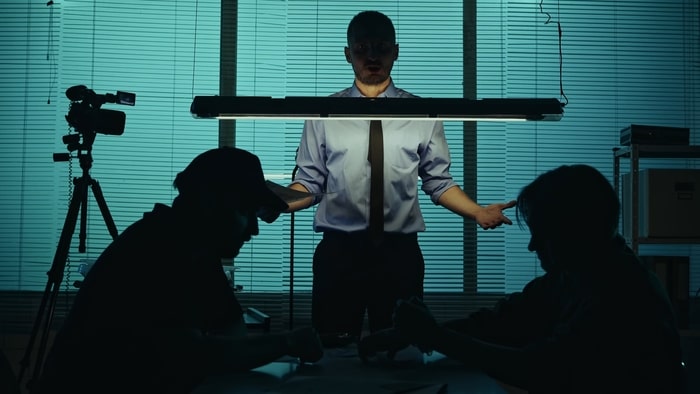
- May 12, 2024
- |security guard company
- | 0
From Clues to Conviction –
Private investigations play a crucial role in uncovering evidence, gathering information, and assisting in legal proceedings. However, conducting private investigations requires adherence to legal and ethical guidelines to ensure the integrity of the evidence collected and protect individuals’ rights. In this article, we delve into the legal process involved in private investigations, exploring the steps taken by security companies like XPressGuards to uphold the law while conducting thorough investigations.
Understanding the Legal Framework
Private investigations operate within a framework of laws, regulations, and ethical standards that govern the collection, handling, and use of evidence. Key aspects of the legal framework for private investigations include:
1. Privacy Laws: Privacy laws regulate the collection, use, and disclosure of personal information obtained during investigations. Investigators must adhere to privacy laws, such as the General Data Protection Regulation (GDPR) and the Health Insurance Portability and Accountability Act (HIPAA), to protect individuals’ privacy rights and prevent unauthorized access to sensitive information.
2. Surveillance Laws: Surveillance laws govern the use of surveillance techniques, such as video recording, audio recording, and GPS tracking, in private investigations. Investigators must comply with state and federal laws governing surveillance activities to avoid infringing on individuals’ privacy rights and facing legal consequences.
3. Evidence Handling: Proper handling of evidence is essential to maintain its integrity and admissibility in legal proceedings. Investigators must follow chain of custody procedures, document evidence collection processes, and preserve digital evidence in a manner that meets legal standards to ensure its reliability and authenticity in court.
4. Ethical Standards: Ethical standards, such as those outlined by professional associations like the National Association of Legal Investigators (NALI) and the Association of Certified Fraud Examiners (ACFE), guide investigators’ conduct and behavior in conducting investigations. Upholding ethical standards ensures the fairness, impartiality, and professionalism of private investigations.
The Legal Process in Private Investigations
The legal process in private investigations involves several key steps, including:
1. Case Assessment and Planning: Before initiating an investigation, private investigators assess the case’s scope, objectives, and potential legal implications. Investigators collaborate with clients to define investigation goals, establish timelines, and develop a strategic plan to achieve desired outcomes while complying with legal requirements.
2. Information Gathering: Private investigators gather information through various means, including interviews, surveillance, background checks, and open-source intelligence (OSINT) research. Investigators must obtain information lawfully and ethically, avoiding illegal or unethical means of obtaining evidence that could compromise its admissibility in court.
3. Evidence Collection: Investigators collect physical and digital evidence relevant to the investigation, such as documents, photographs, videos, and electronic records. Evidence collection must adhere to chain of custody procedures, ensuring that evidence remains intact, unaltered, and properly documented to maintain its admissibility in legal proceedings.
4. Analysis and Documentation: Investigators analyze and document evidence to identify patterns, trends, and connections relevant to the investigation. Documentation includes detailed reports, witness statements, surveillance logs, and forensic analysis findings, providing a comprehensive record of investigative activities and findings for use in legal proceedings.
5. Legal Consultation: Private investigators may consult with legal experts, such as attorneys or legal advisors, to ensure compliance with applicable laws and regulations throughout the investigation process. Legal consultation helps mitigate legal risks, address complex legal issues, and navigate potential legal challenges that may arise during investigations.
6. Report Preparation: Investigators prepare detailed reports summarizing investigation findings, analysis, and conclusions. Reports must be factual, objective, and impartial, presenting evidence in a clear, concise, and organized manner to support legal arguments and facilitate decision-making by clients or legal authorities.
7. Testimony and Court Proceedings: In some cases, private investigators may be called upon to testify as witnesses in legal proceedings, such as hearings, depositions, or trials. Investigators must prepare for testimony by reviewing case materials, refreshing memory on key details, and presenting evidence accurately and truthfully in accordance with legal requirements.
The legal process in private investigations involves adherence to laws, regulations, and ethical standards governing the collection, handling, and use of evidence. Security companies like XPressGuards play a vital role in conducting thorough and legally sound investigations while upholding individuals’ rights and protecting the integrity of the legal system.
By following established legal procedures, consulting with legal experts, and maintaining ethical standards, private investigators contribute to the pursuit of justice and the resolution of legal disputes through the gathering and presentation of credible evidence. Through diligent adherence to the legal process, security companies ensure the reliability and admissibility of evidence collected during private investigations, ultimately supporting the fair and equitable resolution of legal matters. Contact us to learn more.


